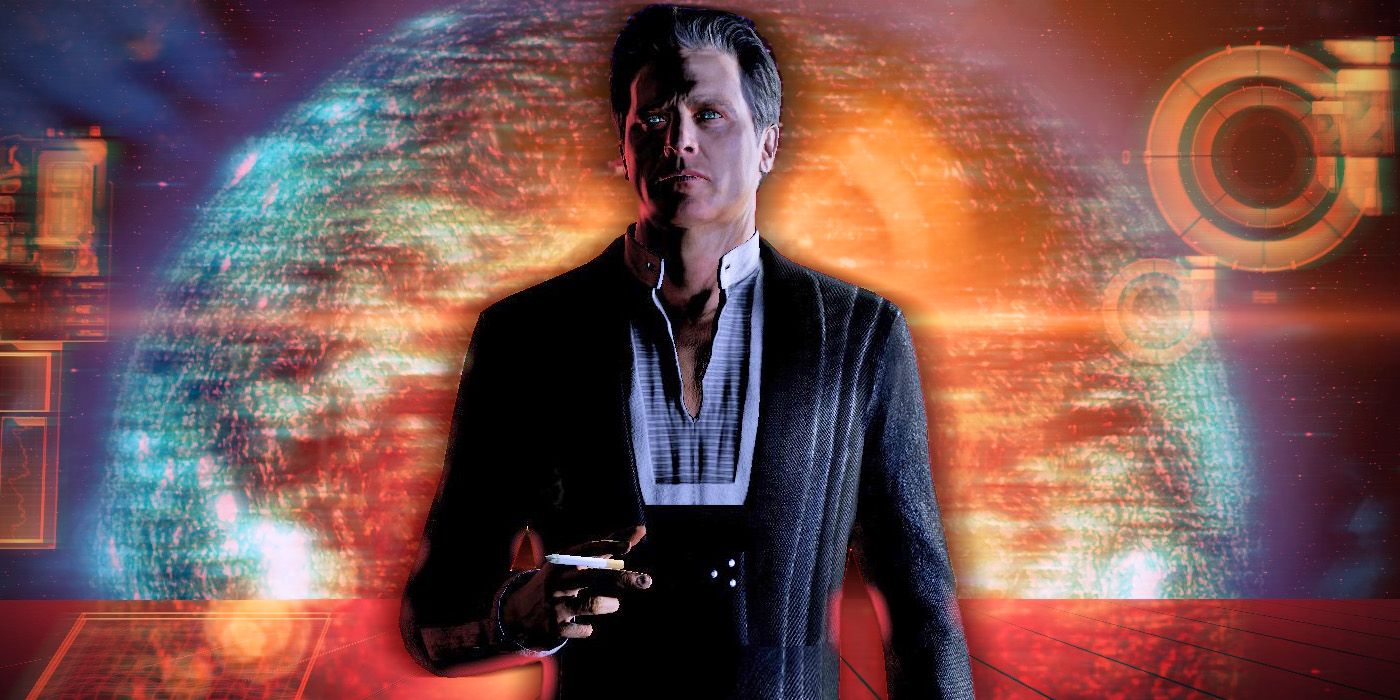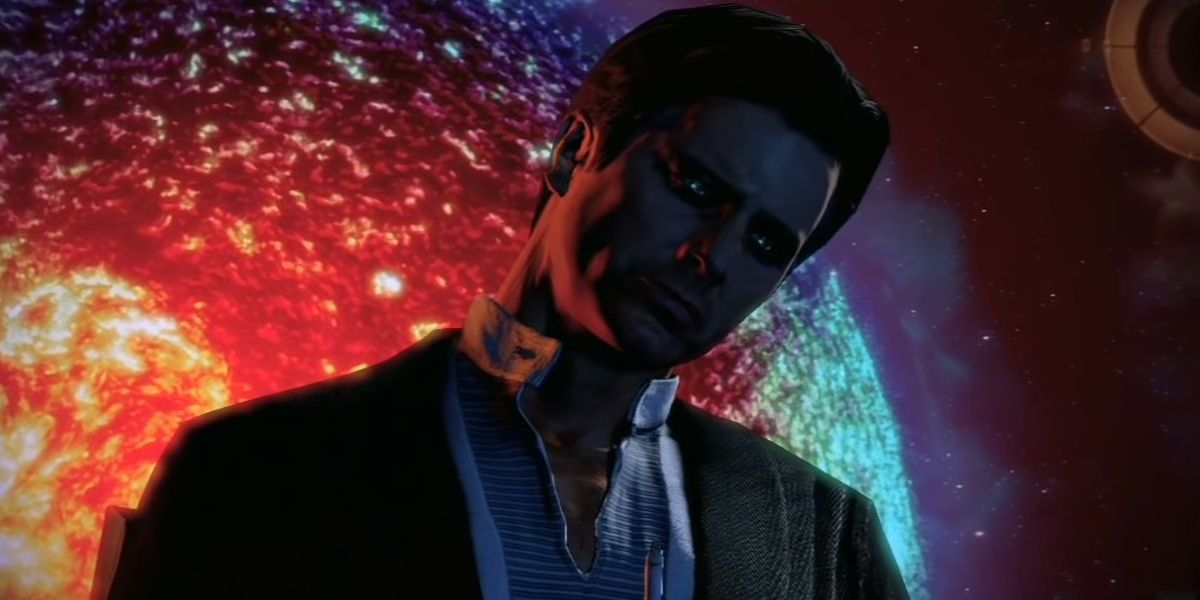Mass Effect, two unlikely parties team up in pursuit of a common goal: Commander Shepard, and the Illusive Man. On paper, they should be enemies. However, circumstances brought Cerberus' mysterious leader and the first human Spectre together, those being the Collector threat in the wake of Sovereign's destruction. But while Shepard and the Illusive Man may be bound by a contract, but there is still palpable tension.
Working With You, Not For You
Commander Shepard always knew what Cerberus was, but as an outsider, the Commander had not even heard the Illusive Man's name, let alone spoken to him. When Shepard was revived in Project Lazarus, Jacob Taylor explained where Shepard was and generously told the Commander about the Illusive Man and his role in all this. Miranda Lawson brought up a shuttle to take Shepard to the boss, but even with Jacob's friendly demeanor, the Commander was apprehensive, expecting nothing but trouble.
Shepard never met the Illusive Man in person, a safety precaution typical of this Cerberus boss. Being the manipulator he is, the Illusive Man never attempted to truly become the Commander's friend or comfort them (setting him apart from friendlier Cerberus agents like Jacob, Kelly, Ken and Gabby). From the very start, the Illusive Man used friendly faces, a common enemy (the Collectors), Shepard's frustration with the Council and appeals to Shepard's advanced capabilities to slowly win the Commander over. Shepard reluctantly agreed to the Illusive Man's mission out of necessity, stressing that they are doing this to protect human colonies and to look deeper into the Reaper threat.
Trouble is brewing, however, and the Illusive Man seeks dominance and control over the Reapers (something he's keeping secret) while the Commander seeks their destruction. The Illusive Man takes Shepard for granted and uses them, such as in the situation with the Collector ship trap and the dangers of visiting the Reaper wreckage orbiting a brown dwarf. By the time Shepard is ready to blast the Collector base apart, the Illusive Man proves all of Shepard's suspicions and doubts to be correct when he announces his intention to use the Collector base's tech to advance humanity by leaps and bounds. Whether Paragon or Renegade, Shepard turns on the Illusive Man, and the Illusive Man has reaped what he has sown. Manipulation could only work on Shepard on the short term. Now, the Illusive Man had the galaxy's most powerful human as an opponent.
Human Destiny
During the events of Mass Effect 3, the Illusive Man becomes the new Saren: an indoctrinated mastermind who commands legions of loyal servants. Shepard is distinctly the Illusive Man's enemy, and for more than one reason. Shepard isn't just disgusted with the Illusive Man's ruthless and bloody methods, such as killing innocent researchers or using Reaper tech on his soldiers. Shepard is most disturbed that the Illusive Man, the so-called defender of humanity, is turning his very back on what it means to be human.
Shepard, despite working for the Council, having cybernetic enhancements and coming back from the dead, is more human than the Illusive Man will ever be. The Commander and the Illusive Man represent the divergence of the common goal of protecting humanity. Shepard wants to win on principle, while the Illusive Man will consort with any powers or ideology to get what he wants. All this puts them at steep odds.
Like Saren before him, the Illusive Man is certain that the Reapers are the path to salvation, his indoctrinated mind believing that their technology and vision will unlock a glorious future. Shepard is his opposite, knowing that the only worthwhile future is one built honestly with humanity's own to hands so to speak. They represent cheating versus honesty, and they come to verbal blows anytime they meet via hologram. The Illusive Man sees Shepard as a short-sighted fool who's rejecting a great gift; Shepard recognizes the Illusive Man as a power-hungry maniac who has become the enemy without realizing it.
The first and only time they meet in person is aboard the Reaper-controlled Citadel over Earth, and Shepard can attempt to talk the Illusive Man down one more time. Here, Shepard may appeal to what little remains of the Illusive Man's humanity to connect with him and force him to realize what he's become. It's possible to win over the Illusive Man, in which case he will end his own life. Either way, Shepard and the Illusive Man's relationship embodies the only two options when faced with the mighty Reapers: follow them and feel the thrill of (temporarily) joining the winning side, or risk destruction to defend what is right, regardless of the odds. The conflict between the Illusive Man and Shepard embodies the battle between selfish pragmatism and fighting back with integrity.



